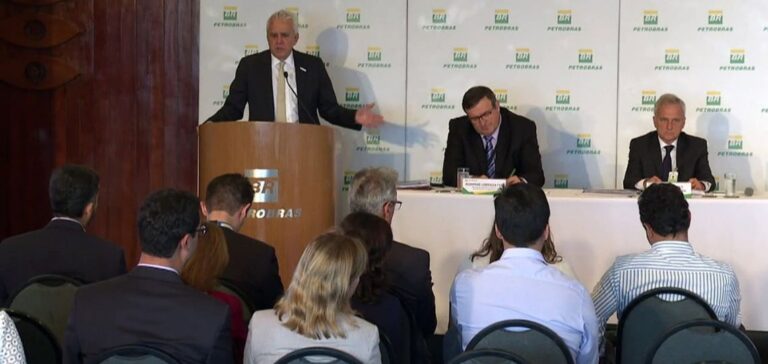Petrobras is changing its policy of reinjecting natural gas into new oil wells, with the aim of increasing gas supply to the domestic market and stabilizing prices.
This decision comes as the Brazilian government adopts a decree enabling the National Agency for Petroleum, Natural Gas and Biofuels (ANP) to mandate reinjection reductions to meet national energy demand.
Currently, the gas produced during oil extraction is mainly reinjected to maintain reservoir pressure and optimize hydrocarbon recovery.
By reducing this practice, Petrobras seeks to maximize the availability of domestic gas, thereby meeting domestic market requirements while improving the profitability of new installations.
Petrobras’ priorities in the Brazilian economic context
Petrobras’ new direction, under the leadership of Magda Chambriard, responds to the immediate needs of Brazil’s energy industry.
The decision to limit reinjection to new wells, excluding existing platforms where modification costs would be too high, reflects a strategy of optimizing resources.
The company aims to adapt its operations to ensure sufficient gas supply on the domestic market, where energy prices remain a concern.
Petrobras’ targeted adjustments reflect an economic pragmatism that is in line with a drive to strengthen national energy security, while adjusting to the regulatory frameworks put in place by the Brazilian government.
On the other hand, this approach does not align perfectly with the climate commitments made by Luiz Inácio Lula da Silva’s administration.
At COP28, Lula put forward an ambitious energy transition, advocating the use of oil revenues to finance renewable energy initiatives such as green hydrogen.
However, Petrobras’ strategic realignment raises questions about the overall coherence of Brazilian energy policy.
Brazil’s participation in OPEC+: A strategy of influence or continuity?
Brazil’s recent accession to OPEC+ as an observer is also a point of tension.
Lula presents this membership as an opportunity to influence world oil producers towards an energy transition.
However, statements by Petrobras CEO Jean Paul Prates emphasize that the company will not follow the production quotas imposed by the cartel, thus maintaining its operational flexibility.
This position highlights a hybrid strategy in which Brazil seeks to play on several fronts: on the one hand, to assert a presence on the international stage in terms of energy and climate policies, and on the other, to preserve its independence in terms of managing its oil production. This dual approach is the subject of debate among industry analysts.
Petrobras’ current policy of not complying with OPEC+ production limitations while maintaining participation in its discussions reflects a strategic orientation that could be perceived as inconsistent.
All the more so as, in parallel with these announcements, Brazil is preparing an auction of new oil exploration blocks, including in ecologically sensitive regions such as the Amazon, which may run counter to the sustainable development objectives put forward by the government at international summits.
Impact on energy policy and world markets
Petrobras’ repositioning and the Brazilian government’s energy policy decisions are having repercussions beyond the country’s borders.
The global market is watching closely as South America’s largest oil producer navigates between the imperatives of energy security, economic competitiveness and environmental commitments.
The decision to focus on increasing gas supply and maintaining independent control over oil production is seen as a response to immediate economic pressures, rather than a strict adherence to the energy transition principles advocated at COP28.
For companies and investors in the energy sector, these developments illustrate the growing complexity of Brazil’s regulatory and market environment.
The country’s determination to maintain robust oil production, while positioning itself in favor of renewable energies on the international stage, reflects a strategy of delicate balancing between economic needs and climate commitments.
This dynamic poses challenges for industry players, who must navigate a rapidly evolving framework where policies can change to respond to economic and geopolitical realities.





















